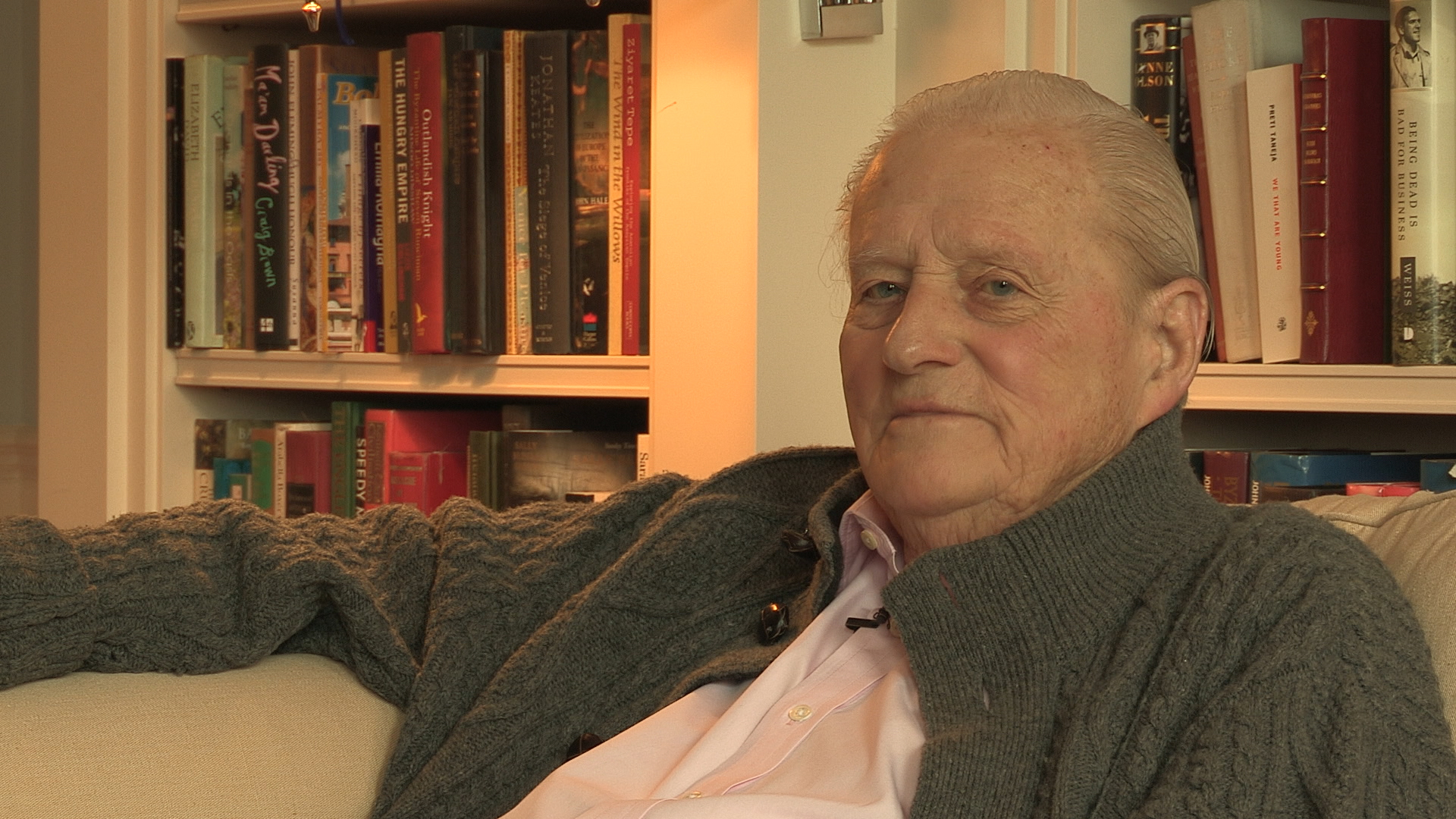NEXT STORY

My gratitude to the Navy
RELATED STORIES

NEXT STORY

My gratitude to the Navy
RELATED STORIES


|
Views | Duration | |
|---|---|---|---|
| 61. Defying my father's advice | 74 | 03:39 | |
| 62. My gratitude to the Navy | 48 | 02:14 | |
| 63. Meeting my future wife | 61 | 03:43 | |
| 64. Satisfying my wanderlust | 48 | 02:19 | |
| 65. Mummy pulls some strings again | 45 | 02:08 | |
| 66. My mother's plan backfires | 46 | 02:43 | |
| 67. Yugoslavia's unspoilt charm | 52 | 02:51 | |
| 68. House-hunting in Belgrade | 51 | 03:34 | |
| 69. Shakespeare comes to Belgrade | 57 | 04:03 | |
| 70. The vanquishing of the best car in the world | 60 | 05:01 |


Then we returned to England where I was demobbed. And that was in August 1949 and in September or early October, I went to Oxford. New College, Oxford, decided to read modern languages and much against my father's advice. He, my father, it's very odd – he wanted me to be a businessman. He was always interested in the City though he never had anything to do with it himself at all, but I was never remotely interested in the City or in business. All I wanted to do was travel – travel and languages, that was what I wanted to do. And I hoped to make myself a good linguist. I already spoke very good French, but my German was rotten and I'd been slogging away with my Russian, but, you know, I could read it slowly, but I could read it. I read War and Peace and, but couldn't ask for the butter, because I never had any practice.
And so, anyway, I decided, I was determined. I said, 'No, I'm going to read French and Russian', so that's what I did. And it was a great mistake, as my father said, you see, he said, 'What do they do? They try and teach you languages at Oxford. You can't learn a language at Oxford. The only way you can learn a language is by going and living with a family and speaking that language all day long.' Total immersion in youth, and when you're old you can't do it even then, but in youth, total immersion is the only way and there is no way you can do total immersion in Russia in 1942... in 1949, because the Iron Curtain was tight, tied down, you know. You couldn't just go with a Russian family and anything like that.
But anyway, I insisted. He said, 'So you can't... they can't teach you the language, really, to talk it. And the other thing they tried to teach you is literature and the literature in my view is, literature should be for enjoyment and not for work. You should settle down with a book because you love it, not because you're studying it.' And he was always terribly against it like that. He hated when people said they were reading English. That was even worse than reading modern languages, because he said literature ought to be fun, that's what it's there for, it's to give us pleasure and if they turn it into work, it just ruins it for you. And he was perfectly right, it did. I mean, I had such a... I was so stuffed with French and Russian literature for those three years, I've barely read a French or a Russian novel since, even in English. You know, it's just sort of put me right off them, so he was completely right and it's the one thing that I really deeply regret about my Oxford career. I wish I'd done history. I should've done history. I was idiotic not to do it, but, there.
[Q] Did you read Proust?
I read Proust, yes. I didn't read Proust at Oxford, I read Proust afterwards, I think, actually. Oddly enough, I read Proust in the most extraordinary place. I read Proust in the middle of the Sahara, merely because I wanted to find something that was as far as possible, as different as possible from the Sahara.
John Julius Norwich (1929-2018) was an English popular historian, travel writer and television personality. He was educated at Upper Canada College, Toronto, at Eton, at the University of Strasbourg and on the lower deck of the Royal Navy before taking a degree in French and Russian at New College, Oxford. He then spent twelve years in H.M. Foreign Service, with posts at the Embassies in Belgrade and Beirut and at the Disarmament Conference in Geneva. In 1964 he resigned to become a writer. He is the author of histories of Norman Sicily, the Republic of Venice, the Byzantine Empire and, most recently, 'The Popes: A History'. He also wrote on architecture, music and the history plays of Shakespeare, and presented some thirty historical documentaries on BBC Television.
Title: Defying my father's advice
Listeners: Christopher Sykes
Christopher Sykes is an independent documentary producer who has made a number of films about science and scientists for BBC TV, Channel Four, and PBS.
Tags: Oxford University, Marcel Proust
Duration: 3 minutes, 39 seconds
Date story recorded: 2017
Date story went live: 03 October 2018